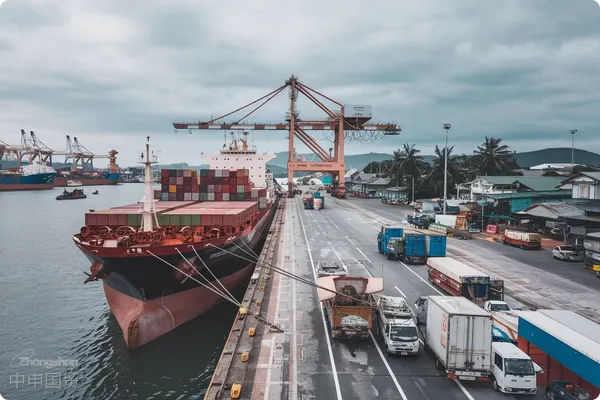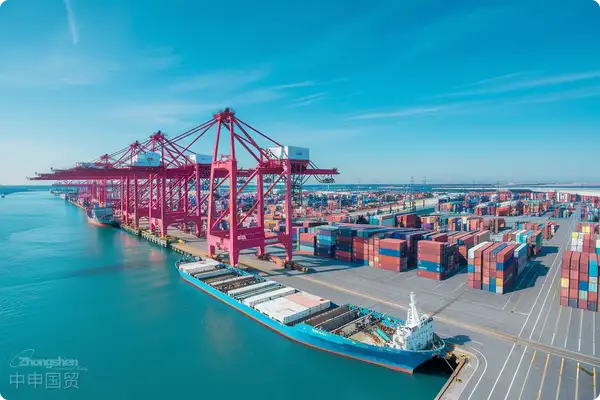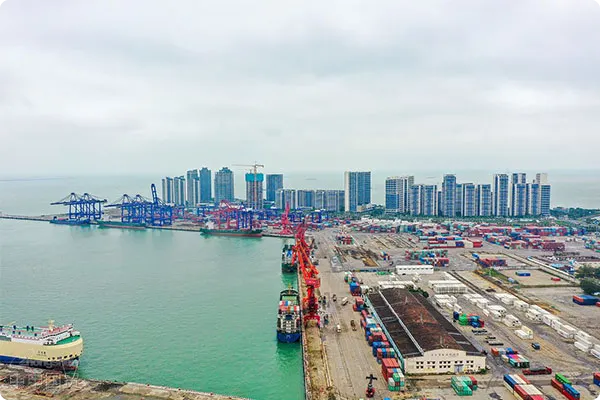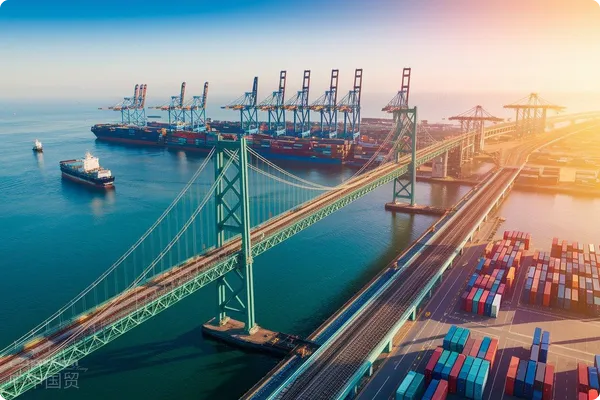- Shanghai Zhongshen International Trade Co., Ltd. - Two decades of trade agency expertise.
- Service Hotline: 139 1787 2118
Preventive Measures: How to Avoid Similar Problems from Occurring?foreign tradeWhen encountering customers refusal to pay customs duties, the common reasons are as follows:The customer received the goods but refused to pay the customs duties.This problem is quite common in international trade. Many foreign trade friends may have encountered similar situations. The customer has cooperated several times and seems very trustworthy. But suddenly one day, they refused to pay the customs duties, and as a result, the express delivery company sent you the bill. What should you do? Today, lets discuss this issue.
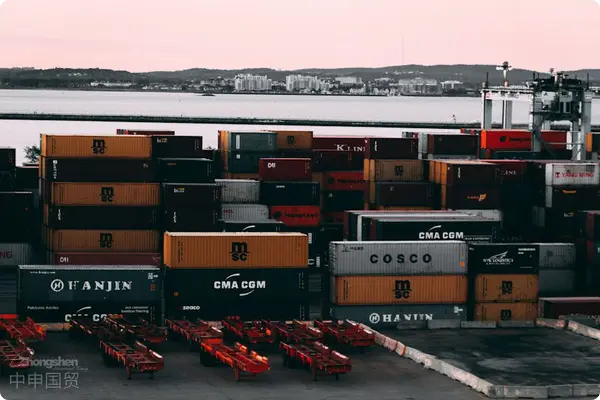
Reasons for customers refusal to pay customs duties
When encountering customers refusal to pay customs duties, the common reasons are as follows:
- High tariffsFor example, some American customers received FedEx bills showing tariffs as high as 25%, with a total amount of over a thousand US dollars. This could be a relatively large burden for customers. Especially when the value of the goods is only over four thousand US dollars, such high tariffs may make customers feel its not cost-effective.
- Pretending to be ignorant or evadingSome customers, in order to avoid costs, choose to pretend to be ignorant and not respond, hoping that the shipper will ultimately bear this cost.
- Financial problems or other reasonsCustomers may encounter financial problems and be unable to pay the additional tariffs, or they may be dissatisfied with the level of tariffs and thus choose to refuse payment.
Handling methods in the face of customers refusal to pay customs duties
Try to contact the customer and communicate to solve the problem
First of all, of course, continue to try to contact the customer via phone, email, and messages. If the customer had a good credit record in the past and there have been several cooperations, then they may just be facing temporary problems. Be patient at this time, communicate with the customer, and understand their actual situation. If its a short - term financial problem, see if the tariffs can be paid in installments or if the payment deadline can be postponed.
Consider returning the goods
If the customer clearly states that they are unwilling to pay the tariffs, you can considerreturning the goods. Although returning the goods will incur additional logistics and time costs, its better than having the goods detained at customs for a long time. It should be noted that before returning the goods, its best to calculate the costs to see if its worth doing so.
Ship the goods in batches to reduce the tariff burden
For future orders, you can consider shipping the goods in batches. For example, the value of this batch of goods is over four thousand US dollars, but the tariff is as high as 25%. If the goods are divided into several batches, with each batch having a value of less than 800 US dollars, it may reduce the tariffs or avoid high tariffs. This way can reduce the customers burden and decrease the probability of tariff refusal.
Change the shipping method to avoid risks
In the European and American markets,Express Deliverythe regulation is to deliver the goods to the customer first, and then issue the tariff bill. This means that if the customer refuses to pay the tariffs, the express company will ask the shipper to pay. To solve this problem, it is recommended thatcustomers place orders with local international express companies, instead of the shipper arranging the shipping.
The advantages of this operation are:
- When customers place orders locally, they are responsible for tariffs and freight, and the shipper only needs to provide the pick - up information.
- Even if the customer ultimately does not pay the fees, the express company will not ask the shipper to recover the fees.
- This method can effectively avoid the risk of the shipper bearing the tariffs and is a relatively safe way of operation.
Finally, have to bear the tariffs oneself
If the customer just doesnt respond and there is no way to return the goods, ultimately the shipper may have to bear this tariff. Although this situation is frustrating, sometimes in order to avoid further trouble, one can only choose to compromise, especially to maintain a good business relationship or avoid loss of goods.
Preventive measures: How to avoid similar problems from occurring?
Clearly define the division of responsibilities in advance
When signing a contract with the customer, clearly stipulatethe responsibility for paying tariffs. Usually, Incoterms (International Commercial Terms) can be used to define the obligations and cost - sharing of the buyer and the seller. For example, under DDP (Delivered Duty Paid), the seller is responsible for paying the tariffs; while under DAP (Delivered At Place), the buyer bears the tariffs.
Choose the appropriate Incoterms
According to the actual situation of the customer and the destination of the goods, choosing the appropriate Incoterms can effectively reduce risks. If you are worried that the customer will refuse to pay the tariffs, you can use the DDP clause, including the tariffs in the total price of the goods to ensure that the fees are settled in advance.
Understand the tariff policies of the destination country
It is very important to understand the tariff policies of the destination country. Before shipping the goods, it is recommended to calculate the possible tariffs and taxes in advance and communicate fully with the customer to confirm that they can accept such fees, so as to avoid disputes over fees after the goods arrive.
Ensure the reliability of the customers credit
Before cooperating with the customer, it is best to conduct some credit investigations to ensure the reliability of the customers credit. If the customer has a history of repeated arrears or refusal to pay fees in previous transactions, then future cooperation should be carried out with caution. If necessary, prepayment or other forms of guarantee can be required.
Summary
The situation of customers refusing to pay tariffs is not uncommon in foreign trade, especially in the European and American markets. International express companies usually deliver the goods first and then settle the tariffs later, which brings potential risks to the seller. To avoid similar problems, it is recommended that foreign trade enterprises, when cooperating with customers,clearly define the division of responsibilities,choose the appropriate Incoterms,use the shipping method where the customer places the orderand try to reduce the customers tariff burden as much as possible. If it is ultimately impossible to avoid the situation of tariff refusal, maintaining a flexible response strategy, such as returning the goods or bearing the costs oneself, is also necessary.
If you have any questions or need professional help in actual operations, please feel free to contact ourZhongShen International Tradeexpert team. I hope this article can help you better understand the countermeasures for customers refusal to pay tariffs and reduce unnecessary economic losses. Wish you all smooth sailing in foreign trade business and be able to solve problems when they arise!
Related Recommendations
Contact Form
Knowledge Base
Contact Us
Email: service@sh-zhongshen.com
Related Recommendations
Contact via WeChat

? 2025. All Rights Reserved. 滬ICP備2023007705號-2  PSB Record: Shanghai No.31011502009912
PSB Record: Shanghai No.31011502009912

